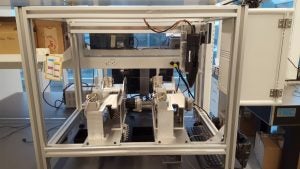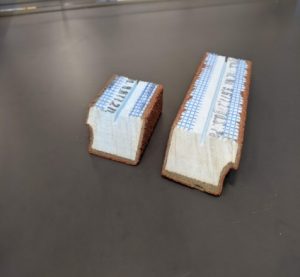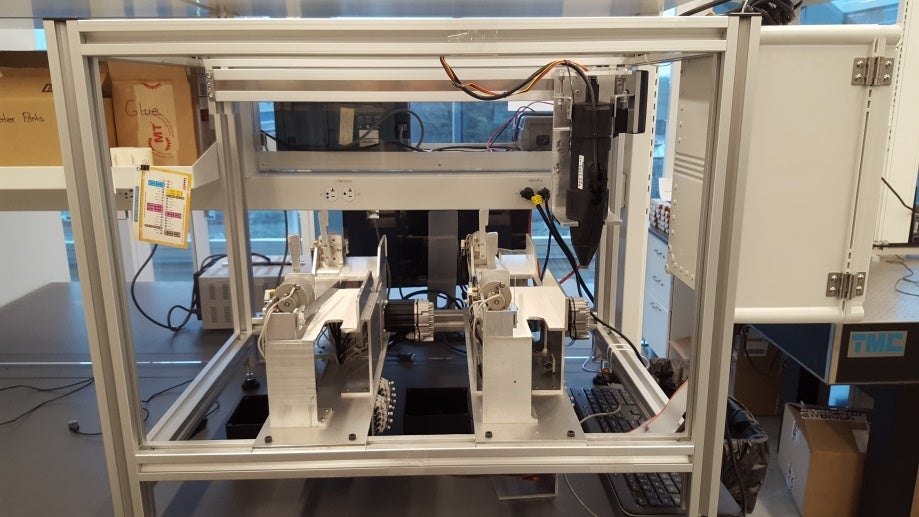The project addresses the development of a semi-automated system for the process of creating corner bricks which are made by joining two individual bricks. The corner bricks are used for exterior corners of buildings and window trims, and are made from two flat bricks cut at 45° angles such that they form a right angle when assembled. In the manual operation, the two corner brick pieces are transferred to a station where workers manually apply glue, align the parts, and apply force for up to 20 seconds until the glue is dried. This process is time-consuming for the workers and cannot be easily scaled to larger production quantities. The goal of this project was to come up with the design of a system that improves the productivity of this labor intensive process. The use of hot-melt glue as an adhesive and the precise alignment required to make the corner bricks make this a very difficult step to automate. Hot-melt glue requires a long time to harden, and the quantity applied must be carefully controlled. If too much glue is used, the glue will be pressed out of the sides and possibly fall into the machine which is unacceptable. If too little glue is applied or if the coverage is not complete, the bricks may not hold together during transport and installation. Additionally, the bricks must be indistinguishable from normal bricks when assembled, so a misalignment of more than 1mm is also unacceptable. The project investigated methods to load and hold the two individual brick components that will be connected, means to apply the hot glue to one of the angled ends of the two components, means to press the two parts together, as well as to handle them after they are joined. A functional prototype to solve this problem that combines custom-design components including DC-servo motors, a linear positioning stage system, numerous pneumatic actuators, various sensors, a control panel, and a microcontroller-based discrete event control system was successfully build and tested.



